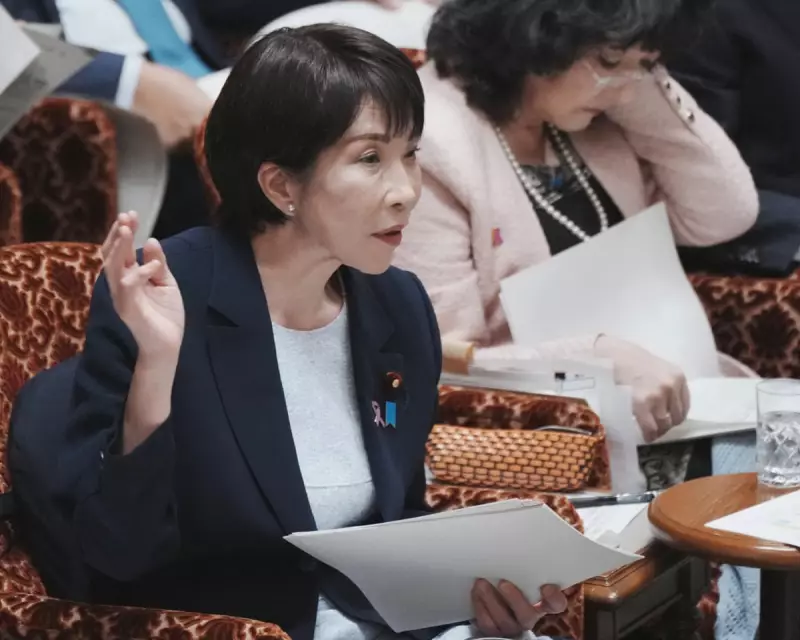
Japan's first female prime minister, Sanae Takaichi, has ignited a national conversation about work-life balance after revealing she functions on an astonishingly minimal two to four hours of sleep per night.
The Midnight Meetings That Caused a Stir
The controversy intensified last week when Takaichi summoned her aides to a 3am meeting in her office, preparing for a budget committee hearing scheduled just six hours later. This extraordinary work schedule emerged weeks after she celebrated her historic appointment by promising to "work, work, work, work and work" - a statement now taking on new significance.
During a legislative committee meeting this week, Takaichi openly acknowledged her sleeping habits to MPs, pointing to the visible bags beneath her eyes. "I sleep about two hours now, four hours at the longest," she confessed, adding wryly, "It's probably bad for my skin."
A Nation Struggling With Overwork Culture
Japan has long battled to reform a corporate culture that expects employees to work punishingly long hours, often followed by evening social obligations with colleagues. The consequences of this approach have been severe, with karoshi - death from overwork - becoming an increasing concern.
The exhausting work culture has also been identified as a contributing factor to Japan's critically low birthrate, as fatigued couples struggle to find energy for family life. This makes Takaichi's sleep revelations particularly concerning to observers.
There's growing apprehension that the prime minister might expect similar dedication from the nation's workforce, especially as her administration discusses potentially raising the cap on overtime hours to stimulate economic growth.
Political Reactions and Health Concerns
Takaichi's workload has drawn expressions of concern from across the political spectrum. Ken Saito, a former LDP economy minister, voiced that he was "honestly worried" about the prime minister's health, while opposition MP Katsuhito Nakajima directly urged her to get more sleep, eliciting a nod and smile from Takaichi.
Despite her personal approach, Takaichi has emphasised that any changes to working conditions would prioritise workers' health. She outlined her vision: "If we can create a situation where people can properly balance childcare and caregiving responsibilities according to their wishes, and also being able to work, enjoy leisure time, and relax - that would be ideal."
However, after her election as Liberal Democratic Party president in early October - a victory that secured her position as prime minister - Takaichi stated she would dispense with the idea of a "work-life balance for myself," while urging her LDP colleagues to "work like a horse."
Japan's Sleep Deficit in Global Context
While Takaichi's sleep schedule is extreme, she's not alone among Japanese citizens in getting insufficient rest. A study released on World Sleep Day in March revealed that people in Japan average just seven hours and one minute of sleep on weekdays.
This places Japan 38 minutes below the international average and behind other developed nations including the United States, Britain, France, Germany, Italy and Canada.
Takaichi has admittedly had little opportunity for relaxation since becoming Japan's first female prime minister at the end of October. Her schedule included an ASEAN summit in Malaysia, hosting Donald Trump for a state visit, and meeting Xi Jinping at the APEC summit in South Korea - all within her first days in office.
The political leader shares her minimal sleep approach with her political hero, Margaret Thatcher, though medical experts increasingly question the sustainability and health implications of such regimes. As Japan continues to grapple with reforming its work culture, the prime minister's personal habits have unexpectedly become central to the national conversation about sustainable working practices.





